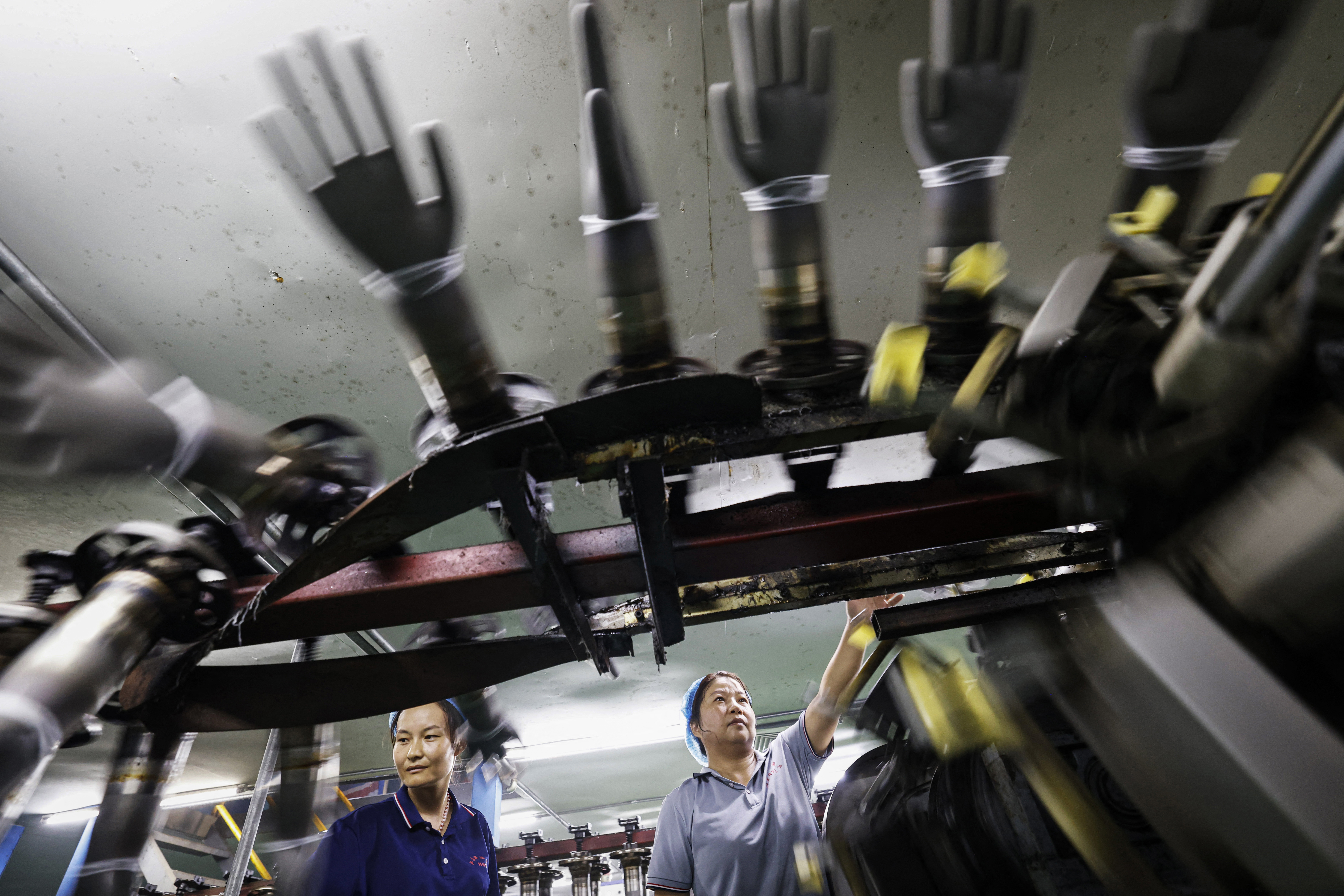China slams Canadian tariff proposal as very dangerous

BEIJING: China’s Commerce Ministry on Wednesday called Canada’s intention to impose further tariffs on its batteries, tech products and critical minerals very “dangerous,” according to state media. On Tuesday, Ottawa announced a 30-day public consultation on the proposed measures, which come on the heels of 100 percent tariffs levied on imports of Chinese electric vehicles, due to take effect on October 1. Canada’s latest tariff announcement is “dangerous and irresponsible,” a spokesperson for China’s Commerce Ministry said, according to the state news agency Xinhua.
The move will severely impact the two countries’ economic and trade relations and also undermines global economic systems and trade rules, the spokesperson added. Discouraging Canada from moving forward on the initiative, the spokesperson said China would aim to protect its own rights and interests, Xinhua reported. The office of Canadian Deputy Prime Minister Chrystia Freeland accused China of unfair competition in the tariff areas, which it said threatens Canadian workers and businesses.
The consultation period will allow for industry input on the application of the surtax and the timing of its coming into force, the statement said. When Canada announced its tariffs on EVs in August, it additionally said it would place a surtax on imports of steel and aluminum products from China. China said it would launch an anti-dumping probe into Canadian canola and chemical products, in apparent retaliation.
Optimism at record lows
Meanwhile, American firms in China are grappling with an unprecedented web of challenges, a business group said Thursday, as economic woes and geopolitical tensions drag optimism and profitability to all-time lows. The American Chamber of Commerce in Shanghai report comes just a day after a European one highlighted what it said was the growing difficulty of doing business in China, and warned “a tipping point” was being reached. Beijing and Washington have navigated an increasingly fraught relationship in recent years, with the world’s top two economies butting heads on a range of issues from trade tariffs to maritime disputes in the South China Sea.
The uptick in political friction coincides with a stubborn slump in the Chinese economy, which has yet to recover from the tumultuous impact unleashed by the pandemic. “It’s a balance between risk and reward,” said AmCham Shanghai president Eric Zheng in a news conference ahead of the release of its 2024 China Business Report. “The perceived risk of doing business in China has gone up in the past few years, but at the same time, the market is slowing down, (with) soft demand and overcapacity.” A report by the European Union Chamber of Commerce in China (EUCCC) Wednesday warned that the risks of doing business in China were “mounting and the rewards (are) seemingly decreasing”.
“A substantial rethink may now be required,” it, drawing on the views of more than 1,700 EU firms operating in the country. Despite efforts by Beijing to boost domestic activity, consumer spending has remained mired in a slump, threatening to plunge the economy into deflation. Meanwhile, an intensification of tariffs this year by the Biden administration on Chinese goods has raised fears of a renewed trade war—a topic made more prominent ahead of November’s US presidential election.
AmCham Shanghai’s survey of US businesses in China shows just 47 percent of 306 respondents hold an optimistic five-year outlook. That compares with the 52 percent recorded last year, which itself was an all-time low. Bottom lines have also suffered, with just 66 percent of respondents saying they were profitable last year, another record low, the report showed. “My view is that tariffs are going to stay in the game as a major trade policy toolbox,” Allan Gabor, the group’s chair, said at the news conference. The scale and scope of potential additional tariffs from Washington hinge on the outcome of the election, he added.
But regardless of who wins, he said “members have adjusted and are assuming that we’re going to have to work with that reality”. A manufacturing glut in goods such as solar panels and electric vehicles, propelled by massive subsidies from Beijing, has been criticized by Western governments who say it has led to unfair competition. EUCCC President Jens Eskelund said Wednesday that overcapacity of Chinese electric vehicles is among the top concerns facing European firms in the country, decrying “enormous waste” in some key sectors.- AFP
















